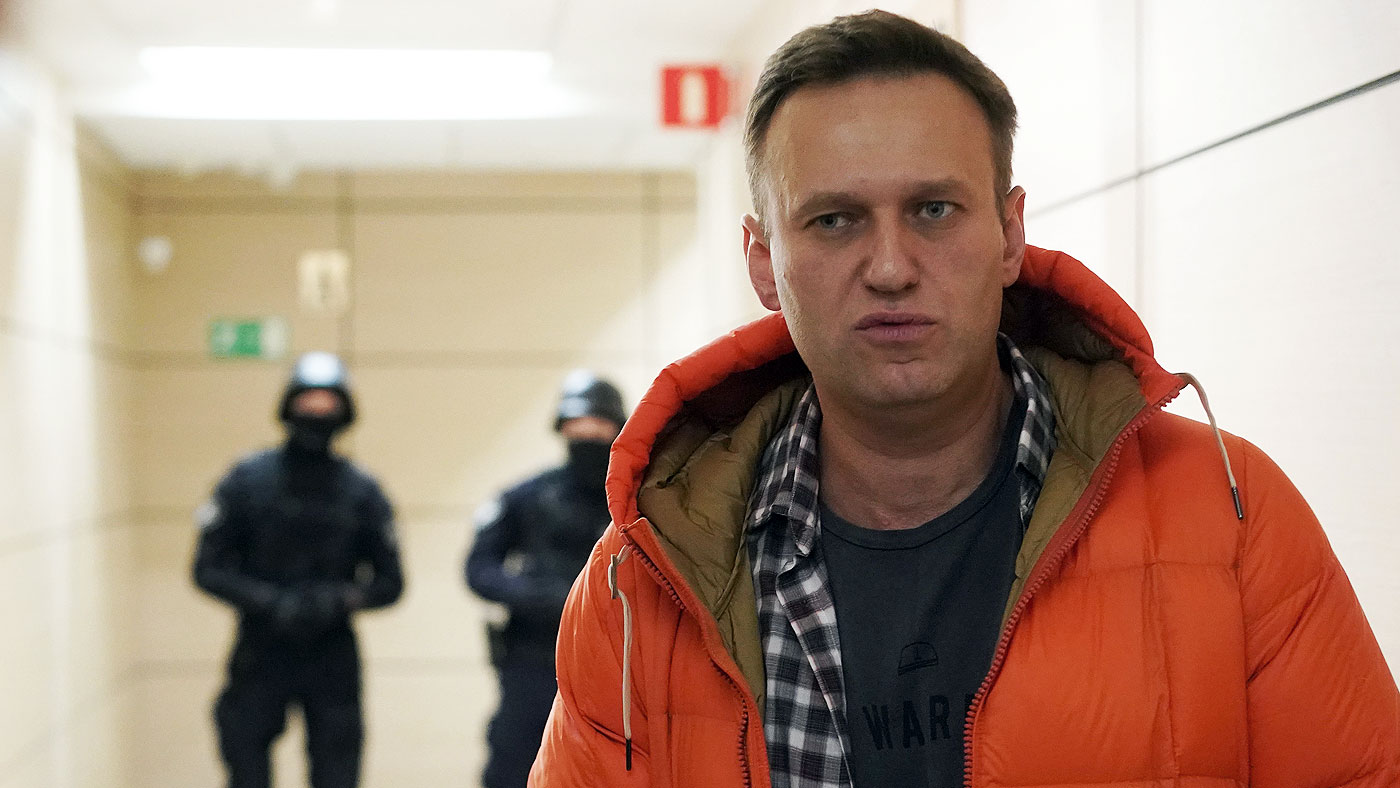Novichok put in Alexei Navalny’s underwear, says Russian spy
FSB agent tricked into revealing bizarre details of plot to kill Putin’s chief critic

A free daily email with the biggest news stories of the day – and the best features from TheWeek.com
You are now subscribed
Your newsletter sign-up was successful
Agents of the Russian security services tried to kill the opposition leader Alexei Navalny by poisoning his underpants with the deadly nerve agent Novichok, according to a member of the assassination unit.
“The stunning disclosure from an agent who belonged to an elite toxins team in Russia’s FSB security service came in a lengthy phone call,” CNN reports. “In what he was told was a debriefing, Konstantin Kudryavtsev also talked about others involved in the poisoning in the Siberian city of Tomsk, and how he was sent to clean things up.”
In fact, Kudryavtsev was talking to Navalny himself, who had “phoned two members of the team from Russia’s FSB spy agency”, says The Guardian. “One recognised him immediately and hung up”, but Kudryavtsev “was seemingly duped into thinking he was talking to an aide working for a top FSB general”.
The Week
Escape your echo chamber. Get the facts behind the news, plus analysis from multiple perspectives.

Sign up for The Week's Free Newsletters
From our morning news briefing to a weekly Good News Newsletter, get the best of The Week delivered directly to your inbox.
From our morning news briefing to a weekly Good News Newsletter, get the best of The Week delivered directly to your inbox.
Navalny fell ill aboard a flight from Tomsk to Moscow in August. He spent several weeks in a medically induced coma at a hospital in Germany, before making a full recovery.
“Laboratory tests in Europe revealed that he had been poisoned with a type of novichok, the Soviet-era poison that was also used in the Salisbury attacks in 2018,” The Times reports.
In his conversation with Navalny, posted on YouTube, Kudryavtsev says the FSB team disabled security cameras in the hotel where the opposition leader was staying and broke into his room with the poison.
“When asked by Mr Navalny to describe what item of clothing the agents had smeared with the nerve agent, Mr Kudryavtsev replied: ‘The underpants’,” The Times recounts. “When pressed further, he said: ‘They told us to work on the underpants. On the inside part. The crotch.’”
A free daily email with the biggest news stories of the day – and the best features from TheWeek.com
According to tests carried out by the US army, “the groin is one of the areas of the human body that is most sensitive to nerve agents”, the paper explains.
Investigative journalists has previously suggested that the poison had been delivered in a negroni recommended by his hotel bartender. It “tasted like the most disgusting thing I’ve had in my life”, he said last week.
Holden Frith is The Week’s digital director. He also makes regular appearances on “The Week Unwrapped”, speaking about subjects as diverse as vaccine development and bionic bomb-sniffing locusts. He joined The Week in 2013, spending five years editing the magazine’s website. Before that, he was deputy digital editor at The Sunday Times. He has also been TheTimes.co.uk’s technology editor and the launch editor of Wired magazine’s UK website. Holden has worked in journalism for nearly two decades, having started his professional career while completing an English literature degree at Cambridge University. He followed that with a master’s degree in journalism from Northwestern University in Chicago. A keen photographer, he also writes travel features whenever he gets the chance.
-
 Political cartoons for February 16
Political cartoons for February 16Cartoons Monday’s political cartoons include President's Day, a valentine from the Epstein files, and more
-
 Regent Hong Kong: a tranquil haven with a prime waterfront spot
Regent Hong Kong: a tranquil haven with a prime waterfront spotThe Week Recommends The trendy hotel recently underwent an extensive two-year revamp
-
 The problem with diagnosing profound autism
The problem with diagnosing profound autismThe Explainer Experts are reconsidering the idea of autism as a spectrum, which could impact diagnoses and policy making for the condition
-
 What happens now that the US-Russia nuclear treaty is expiring?
What happens now that the US-Russia nuclear treaty is expiring?TODAY’S BIG QUESTION Weapons experts worry that the end of the New START treaty marks the beginning of a 21st-century atomic arms race
-
 Epstein files topple law CEO, roil UK government
Epstein files topple law CEO, roil UK governmentSpeed Read Peter Mandelson, Britain’s former ambassador to the US, is caught up in the scandal
-
 Iran and US prepare to meet after skirmishes
Iran and US prepare to meet after skirmishesSpeed Read The incident comes amid heightened tensions in the Middle East
-
 Israel retrieves final hostage’s body from Gaza
Israel retrieves final hostage’s body from GazaSpeed Read The 24-year-old police officer was killed during the initial Hamas attack
-
 China’s Xi targets top general in growing purge
China’s Xi targets top general in growing purgeSpeed Read Zhang Youxia is being investigated over ‘grave violations’ of the law
-
 Ukraine, US and Russia: do rare trilateral talks mean peace is possible?
Ukraine, US and Russia: do rare trilateral talks mean peace is possible?Rush to meet signals potential agreement but scepticism of Russian motives remain
-
 Panama and Canada are negotiating over a crucial copper mine
Panama and Canada are negotiating over a crucial copper mineIn the Spotlight Panama is set to make a final decision on the mine this summer
-
 Why Greenland’s natural resources are nearly impossible to mine
Why Greenland’s natural resources are nearly impossible to mineThe Explainer The country’s natural landscape makes the task extremely difficult